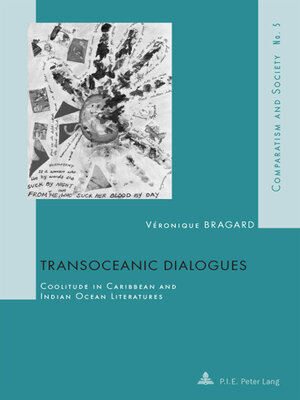Transoceanic Dialogues
ebook ∣ Coolitude in Caribbean and Indian Ocean Literatures · Comparatisme Et Société / Comparatism and Society
By Hubert Roland

Sign up to save your library
With an OverDrive account, you can save your favorite libraries for at-a-glance information about availability. Find out more about OverDrive accounts.
Find this title in Libby, the library reading app by OverDrive.



Search for a digital library with this title
Title found at these libraries:
| Library Name | Distance |
|---|---|
| Loading... |
At the point in time when the abolition of slavery was being celebrated, another system of servitude was underway: indentureship. Indenture labor resulted in the transportation of one million Indians – called coolies – into British and French colonies. Unable or unwilling to return, a great majority of them stayed in the countries they had been shipped to and participated in the creation of new, creole cultures.
This book offers a close reading of literary works in French and in English by women writers whose ancestors originally came to the Caribbean or across the Indian Ocean as indentured laborers. Positing a dynamic and open approach, the author adopts the concept of coolitude to examine how their works capture, on the one hand, the Indian element of the creolization process and, on the other hand, the creolization of the Indian diasporic inheritance.
Organized around the paradigm of the crossing – historical, geographical, gender-based, corporeal, identitary – this study offers insightful transoceanic, transregional and transcolonial dialogues between Caribbean and Indian Ocean literatures. Focusing on themes of displacement, entrapment, metamorphosis and marginalization, the author explores the entanglements and tensions that characterize creole pluricultural landscapes while she underscores Caribbean and Mauritian literature's engagement with alterity.
This book offers a close reading of literary works in French and in English by women writers whose ancestors originally came to the Caribbean or across the Indian Ocean as indentured laborers. Positing a dynamic and open approach, the author adopts the concept of coolitude to examine how their works capture, on the one hand, the Indian element of the creolization process and, on the other hand, the creolization of the Indian diasporic inheritance.
Organized around the paradigm of the crossing – historical, geographical, gender-based, corporeal, identitary – this study offers insightful transoceanic, transregional and transcolonial dialogues between Caribbean and Indian Ocean literatures. Focusing on themes of displacement, entrapment, metamorphosis and marginalization, the author explores the entanglements and tensions that characterize creole pluricultural landscapes while she underscores Caribbean and Mauritian literature's engagement with alterity.







